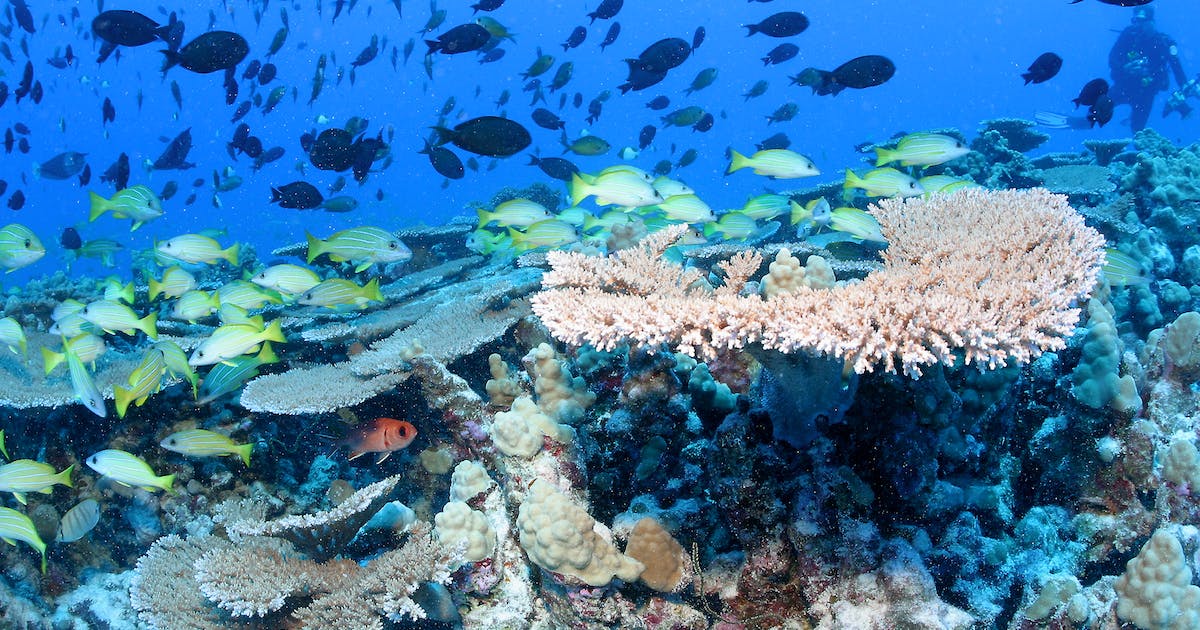Hawai‘i Governor David Ige will sign a bill tomorrow to prohibit the sale of sunscreens containing chemicals that contribute to the destruction of coral reefs.
Hawai‘i is the first state in the U.S. to pass such a law, which met with praise from conservationists.
“Conservation International applauds the state of Hawai’i for recognizing the importance of corals and taking this bold step forward towards improving the protection of Hawaii’s world-class reefs,” said Matt Ramsey, director of
Conservation International Hawai‘i. “The significance of this action will extend far beyond the islands. With 9 million visitors each year, Hawaii’s commitment will educate consumers worldwide about the harmful effects that sunscreen
can have on marine life.”
Scientists estimated about 14,000 tons of sunscreen ends
up in coral reefs each year. The bill bans the sale of sunscreens that contain the chemicals oxybenzone and octinoxate, which are used in more than 3,500 of the world’s most popular sunscreen products.
A 2015 study found that oxybenzone “leaches the coral of its nutrients
and bleaches it white. It can also disrupt the development of fish and other wildlife.” Octinoxate may cause similar problems but there are fewer studies about the chemical to prove these claims.
Consumers can still wear over-the-counter sunscreens that don’t contain these chemicals and prescription sunscreens
that have these chemicals.
Hawaii’s coral reefs are under stress from other threats including warming oceans, overfishing and invasive species. In response to these stressors, reefs can “tip” into a degraded state that may be difficult to reverse.
Hawaii’s communities rely on coral reefs for seafood. According to a recent study, 84 percent of the fish caught in Hawaii’s reefs are obtained by local fishers, who use their fish to feed their families and to sell to local markets. As coral reefs deplete, so do the fish populations.
“Coral reefs are a critical component of our food, culture, economy and overall way of life. We simply must protect them,” Ramsey said.
This law is the most recent in a spate of other bills the state has passed to protect the environment
and combat climate change. Other recent bills in Hawai‘i aim to achieve carbon neutrality by 2045 and to create
a carbon offset program to help meet this target. By the same year, the state expects to reach its goal of using
100 percent renewable energy.
Hawaii’s sunscreen law will take effect in 2021.
Morgan Lynch is a staff writer for Conservation International.
Want to read more stories like this? Sign up for email updates. Donate to Conservation International.
Further reading

